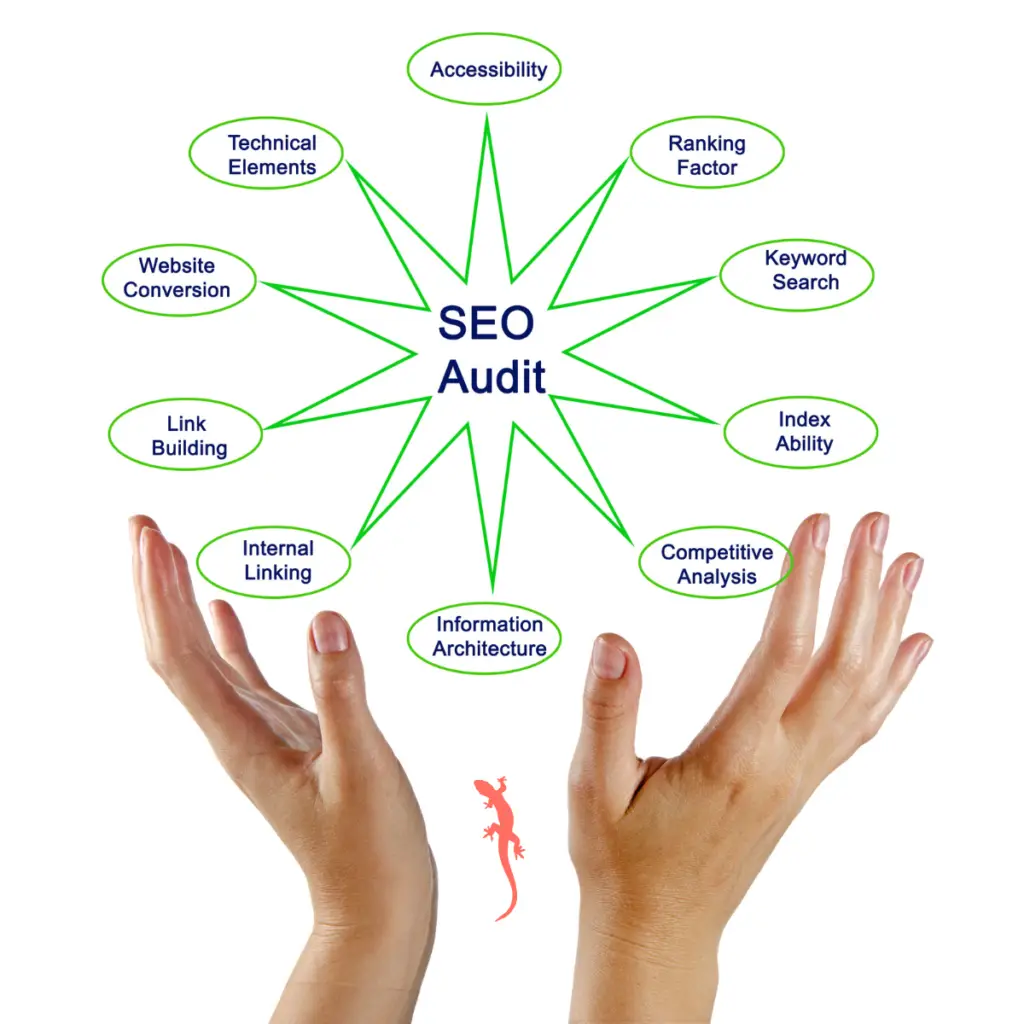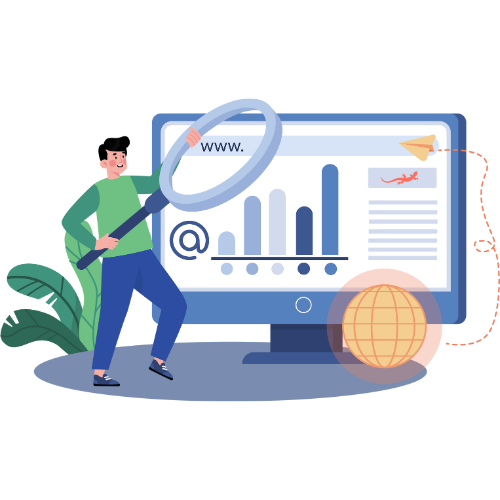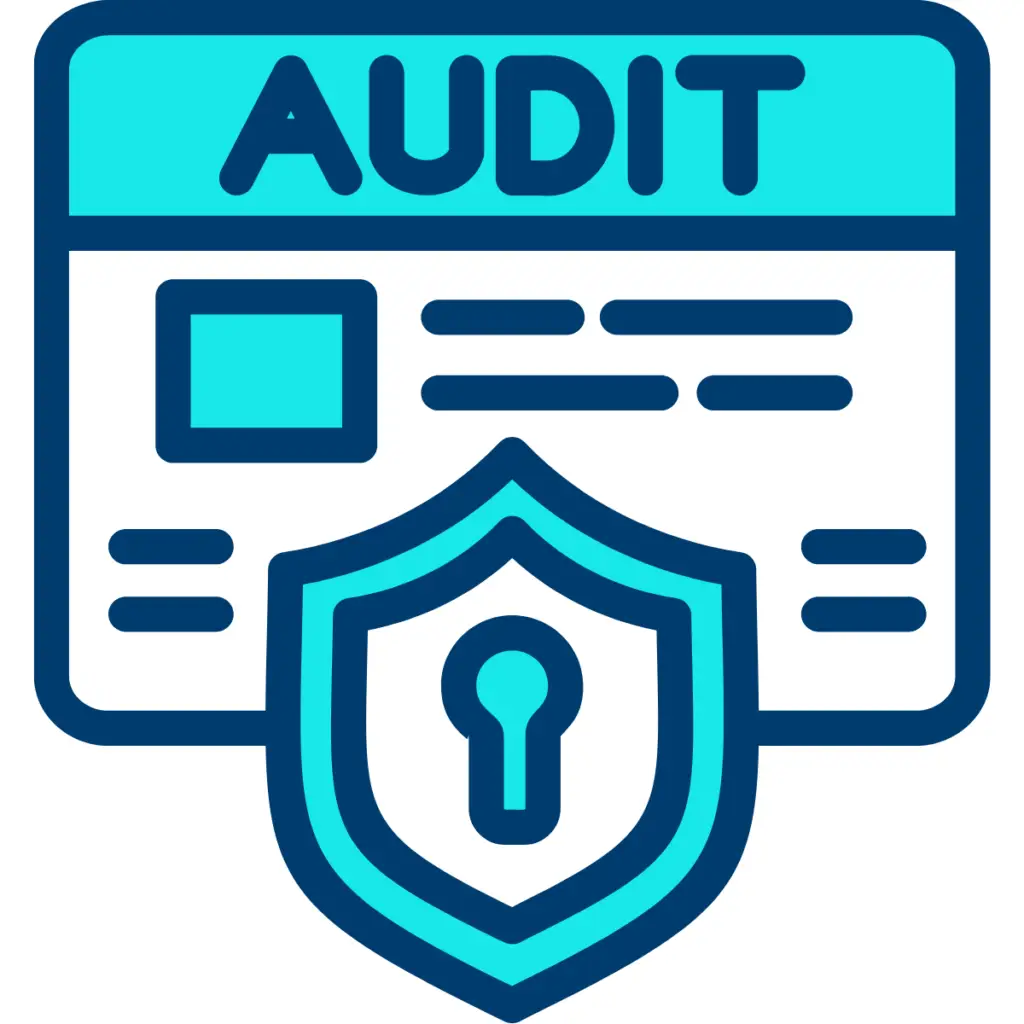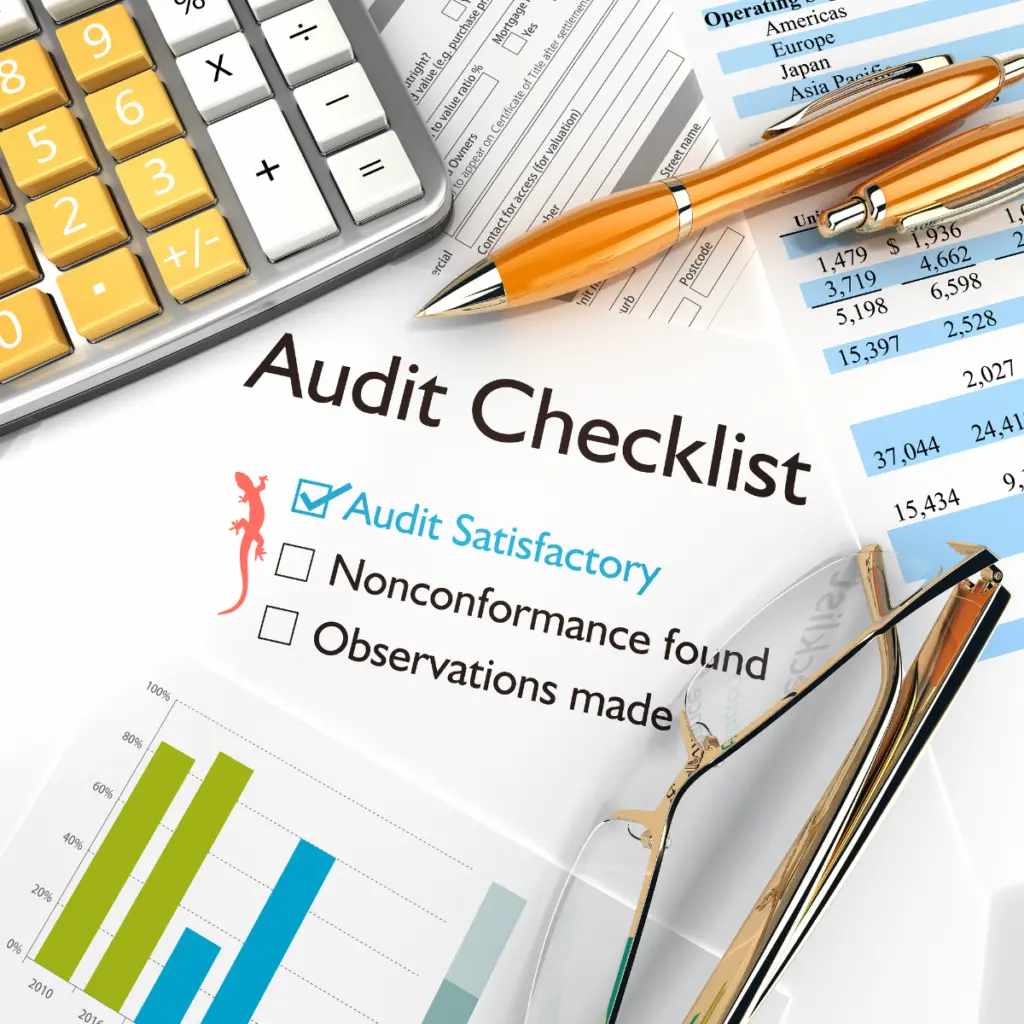Website Audit
Why Is a Website Audit Important?
Boosts SEO: Fixes issues that hurt search rankings.
Improves User Experience: Ensures fast, mobile-friendly pages.
Enhances Security: Finds weak spots and protects data.
Increases Conversions: Fixes broken links and poor CTAs.
Keeps You Competitive: Helps you stay ahead online.
A website audit checks your site’s health and makes it better.

Types of Website Audit
SEO Audit: It focuses on search engine optimization and the components of it.
Usability Audit: Evaluates how easy and enjoyable the website is for users.
Content Audit: Analyzes the quality and relevance of the website’s content.
Performance Audit: Measures loading times and overall site speed.
Security Audit: Identifies vulnerabilities that could lead to data breaches.

Steps to Conduct a Website Audit
Website Audit: Define Your Goals
Before starting the audit, clarify what you want to achieve. Common goals include:
- Increasing traffic
- Reducing bounce rates
- Improving user engagement
- Boosting conversions
Website Audit: Seo Audit
Keywords: Make sure your website uses relevant keywords. Use tools like Google Keyword Planner to find the best ones for your topic.
Research: Look for keywords with a good search volume but low competition.
Placement: Ensure keywords are naturally included in titles, headers, and content.
Meta Tags :Meta tags are essential for SEO.Every page should have its own title and description.
Title Tags: Keep them under 60 characters and include the main keyword.
Meta Descriptions: Should be under 160 characters and provide a summary of the page.
Analyze Existing Links: Use tools like Ahrefs to see who links to you and assess link quality.
Technical SEO: Check for technical issues that may affect your site’s ranking.
Broken Links: Use Screaming Frog to find and fix them.
XML Sitemap: Ensure you have an updated XML sitemap to help search engines index your pages.
Website Audit: Usability Audit
Clear Menu: A simple menu helps users navigate your site.
Search Functionality: Include a search bar for easy access to content.
Mobile Responsiveness: With more users on mobile, ensure your site is mobile-friendly.
Responsive Design: Test your site on various devices to ensure it looks good and easy to catch.
Google’s Mobile-Friendly Test: Use this tool to check mobile usability.
Accessibility :Make your site easy for everyone to use, including people with disabilities
Alt Tags: Use alt tags for images to help visually impaired users.
Readable Fonts: Fonts Color should not match the background overlay.

Website Audit: Content Audit
Quality: Evaluate the quality of your content.
Relevance: Ensure your content is up-to-date and relevant to your audience.
Engagement: High bounce rates may indicate that your content isn’t engaging. Improve by adding visuals and clear calls to action.
Structure: The structure of your content affects readability.
Bullet Points: Use bullet points for lists to make information easy to digest.
Website Audit: Performance Audit
Loading Speed: A fast website enhances user experience and SEO.
Test Speed: Use tools like Google Page Speed Insights to analyze your site speed.
Aim for Under 3 Seconds: A loading time of three seconds or less is ideal.
Image Optimization: Large images can slow down your site.
Compress Images: Use TinyPNG to make images smaller without losing quality.
Proper Formats: Use appropriate formats like JPEG for photos and PNG for graphics.
Hosting: Your hosting provider can impact site performance.
Choose a Reliable Host: To get best performance chose the best hosting provider.
Upgrade if Necessary: Upgrade hosting provider

Website Audit: Security Audit
SSL Certificate: Check if your website uses HTTPS.
Importance of SSL: An SSL certificate encrypts data and builds trust with users.
Get an SSL Certificate: If you don’t have one, many hosting providers offer SSL certificates.
Software Updates: Keep your CMS, plugins, and themes updated.
Regular Updates: Old software can create security risks
Backup Regularly: Ensure you have backups in case of data loss.
Security Measures: Implement security measures to protect your site.
Use Security Plugins: Consider using plugins that enhance security and prevent attacks.
Educate Your Team: Train your team on security best practices to prevent human error.


Google Analytics: Google Analytics shows how users interact with your site.
Google Search Console: shows how your site shows up in search results.
Screaming Frog: This is a tool that finds SEO problems on your website
Ahrefs/SEMrush: Useful for backlink analysis and keyword research.
GTmetrix: Tests website speed and provides improvement suggestions.
Common Issues Found in Website Audit
Slow Loading Speed: A common issue that affects user experience and SEO.
Poor Mobile Optimization: A non-responsive site can lose traffic.
Outdated Content: Old content can harm your credibility and relevance.
Broken Links: Links that lead to 404 errors frustrate users and hurt SEO.
Lack of SSL: A site without HTTPS may deter users and rank lower.
Making Improvements
Focus on fixes that most affect user experience and SEO.

Focus on fixes that most affect user experience and SEO.
1. Optimize Content
Update Old Information: Regularly review and update content to keep it fresh.
Add New Content: Create new, relevant articles or blog posts that address user needs.
Improve Readability: Use simple words, short paragraphs, and clear layout.
2. Enhance SEO
Revise Meta Tags: Update title and description tags for better SEO performance.
Build Quality Backlinks: Develop a strategy to earn links from reputable sites.
Optimize Images: Ensure all images are compressed and appropriately tagged.
What ITLizard Offer You?
Improve Your Website with ITLizard’s Expert Website Audit Service
Is your website not performing well? ITLizard’s Website Audit service helps you find and fix issues to boost your rankings, speed, and user experience.
What We Offer:
✔ SEO/Website Audit – Find errors that hurt your rankings
✔ Technical Audit – Fix speed, mobile issues, and broken links
✔ On-Page Audit – Improve titles, meta tags, and content
✔ Backlink Analysis – Check your links for better authority
✔ User Experience (UX) Audit – Make your site easy to use
✔ Security Check – Protect your site from threats
We use advanced tools to analyze your website and provide a clear report with solutions. Whether you have a blog, eCommerce store, or business site, our audit helps you improve your rankings, traffic, and conversions.
Want a stronger website? Contact ITLizard today and get a detailed website audit that improves performance!




